This is the last article you can read this month
You can read more article this month
You can read more articles this month
Sorry your limit is up for this month
Reset on:
Please help support the Morning Star by subscribing here
WHEN I woke last Saturday, still in November, Storm Arwen had reached my home in the East Midlands. Outside the window there was heavy sleety snow and a few centimetres of fluffy white stuff had turned the garden into a winter wonderland.
Snow is a rare phenomenon nowadays in my part of the country but when I was a kid 60-odd years ago in north London we could almost guarantee a few weeks of heavy snow, certainly enough to build a snowman and have a few snowball fights, each and every winter.
I remember wrapping up warm to watch the huge number 18 six-wheel electric trolleybuses spinning their wheels on the stiff snowy climb from Harlesden to Wembley. These environmentally sound buses were much better on hills than the smelly diesels that would go on to replace them.
We kids loved the snow but our parents thought it a huge inconvenience carrying coal and paraffin home from the corner shop. Central heating was a long way off. The coalman still delivered by horse and cart but not in the slippery snow.
Today worsening global warming has made snow in southern England rarer and rarer. The few snowfalls we still see most winters are light and all too soon the snow is washed away by heavy rain. It is one of the most easily spotted effects of increasing temperature. Historically, our winters have been far colder and snowier than they are today.
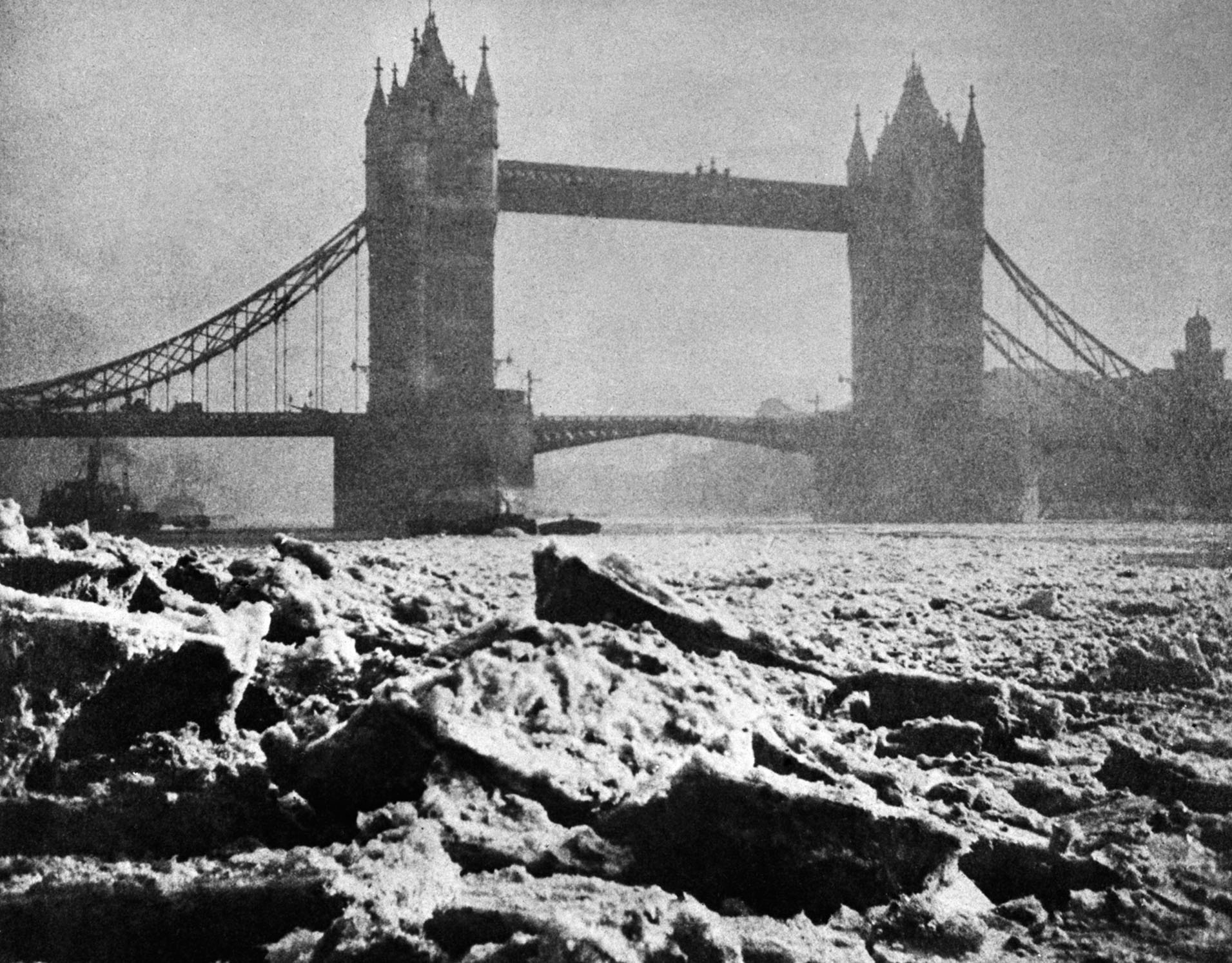
Last week my Ramblings were all about the changing face of the Thames. One little interesting snippet squeezed out by lack of space were tales of the many frost fairs held on the Thames, frozen solid for many months. These happened even in the centre of the capital itself.
During both the 1620s and the 1700s there were many frost fairs held on the Thames. It seems incredible but the ice was so thick they could even build huge fires on the ice itself. They would sit round and enjoy a mulled wine with their entertainment.
In 1635 and again in 1648-49 the Thames froze solid. In 1657-58 long-lying snow lasted from December through until March. From 1662 to 1667 three of the five winters saw severe frosts.
Ice was so predictable that skating, too, became popular on the frozen Thames in winter. The winter of 1664-65 saw the coldest day ever in England, with a severe frost lasting about two months.
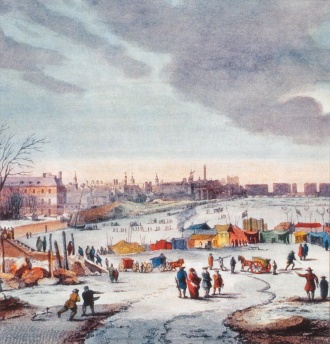
In 1683-84 mid-December saw what would be called “The Great Frost” not just in Britain but all across central Europe.
The Thames was frozen all the way up to London Bridge by early January 1684. The frost was to be the longest on record, not melting until mid-February. From 1690-99 six out of 10 of the winters were very severe.
The winter of 1694-95 saw deep snow that lasted for five weeks, along with the freezing of the Thames. In fact 1695 is believed to have been one of the coldest years ever recorded — the severe snowy winter ended around mid-April.
The winter of 1708-09 was another really severe winter and the Thames froze in London for over three months. In 1715-16 the river froze for a couple of months. A huge iceberg on the river was lifted around 15 feet by a freak flood tide.
In 1731 another Great Frost started the year. The first period of the year was very cold indeed, with much snow and ice. 1739-40 was one of the worst, coldest winters, perhaps even worse than 1715.
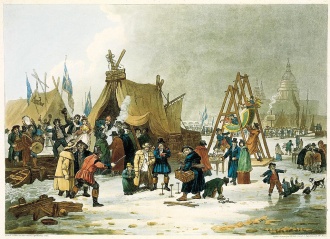
When 1800 arrived the weather certainly had warmed, but not by too much. The Thames still froze often enough to see the river solid enough to hold an occasional frost fair.
Large houses and estates still built underground and well-insulated ice houses to store huge blocks of ice cut from the lakes that could still be guaranteed to freeze over winter. That ice would last all year and provided the first primitive refrigeration.
The winter of 1885-86 was notable, with snow in October, November, December, January, February, March, April and even May. London recorded a foot of snow in just an hour in early January.
During the 1900s there were reducing snow falls and generally less cold winters but there were some notable exceptions. 1916, in the middle of the first world war, saw enormous falls of snow — over 10 foot in the Pennines, and the high Peak District.
1917-18 was average, but 1918-20 again saw several deep snow storms in London, one fall being over nine inches.
1946-47 — the winter I was born — was one of the snowiest winters ever.
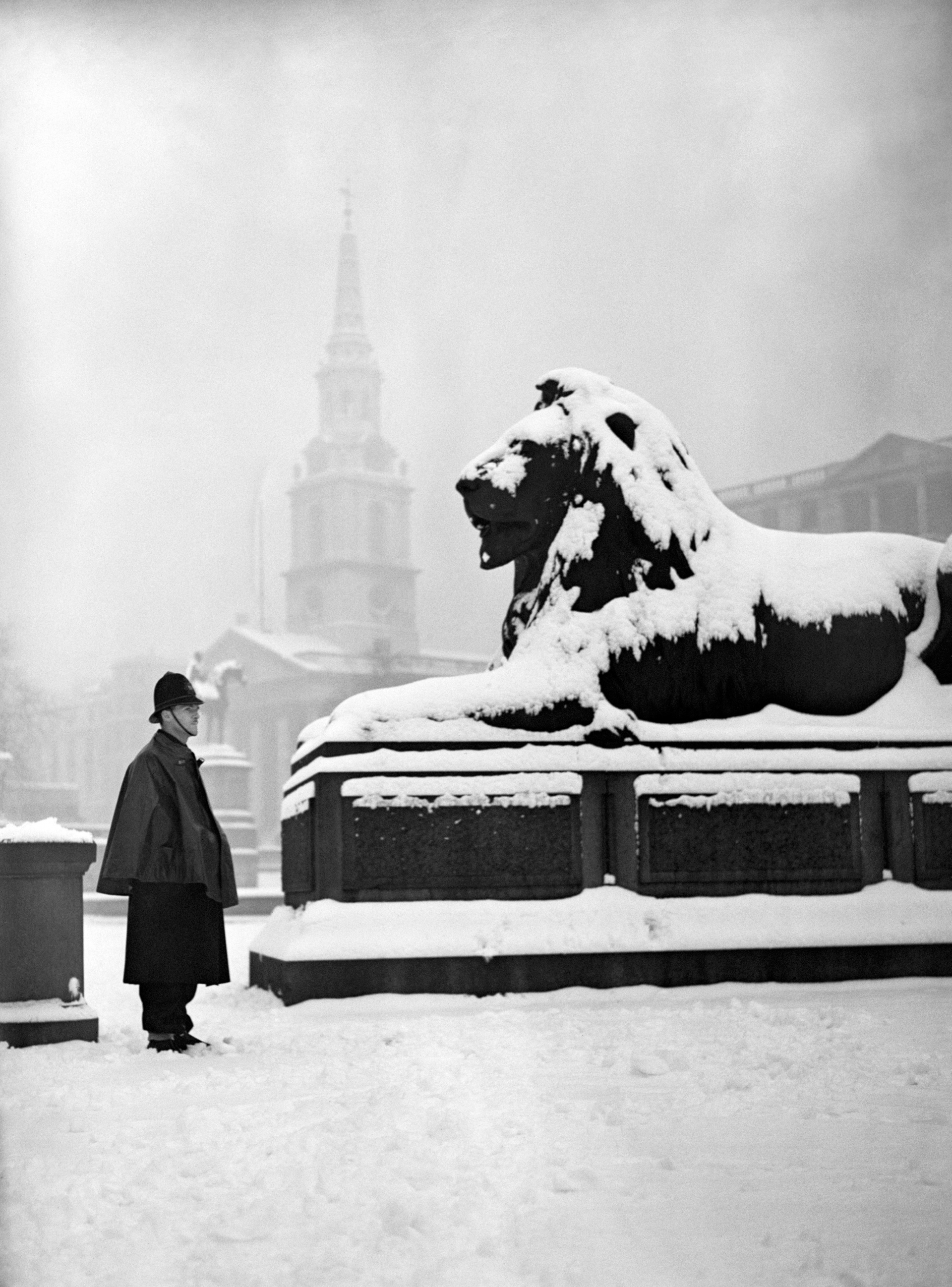
Snow fell on December 19 in southern England. After a brief respite there was continuous snow right up till March 17. In early March there was a blizzard in England and Wales, with one foot of snow. The snow started late, and lasted a long time.
1950-51 will be remembered as the snowiest winter of that century. There were 102 days of lying snow in some places.
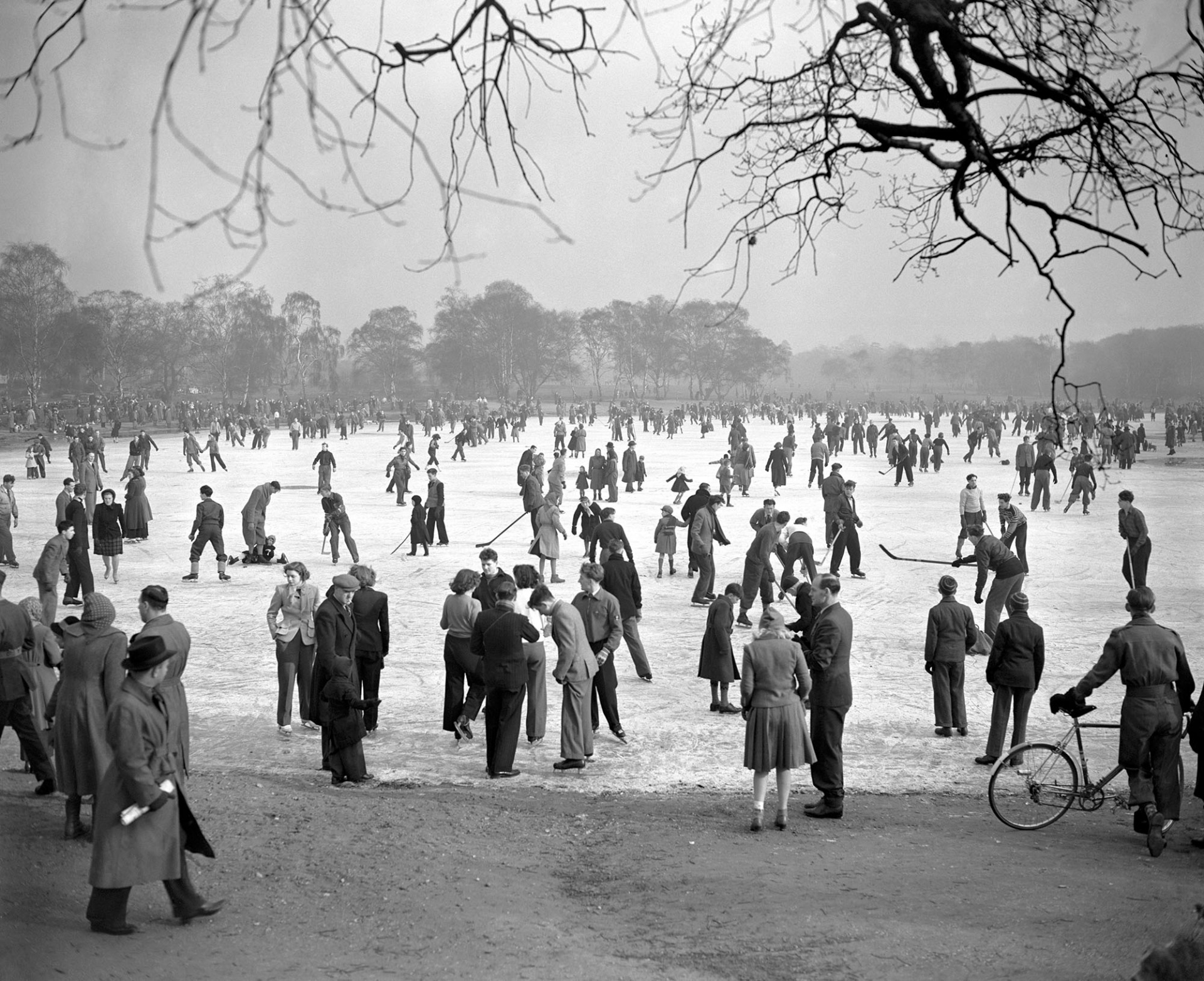
I remember 1962-63 well. It would become a famous very cold winter. Boxing Day saw blizzards in southern England and London had well over a foot of drifting snow.
Perhaps that is enough of this short history of snowfalls since 1600. Now things have certainly changed. Of course weather is always changeable and usually unpredictable, but I think I have demonstrated there is certainly a long-term trend away from regular deep snow in London.
Certainly it would be hard to imagine the Thames in or near London freezing enough to walk or skate on today. Now we rely on plastic rinks to give us skating in the Christmas holiday.
The reason for all this heating up is, of course, what we call global warming. It is a major part of our climate catastrophe, with less snow but more rain, some of that rain heavy enough to cause disastrous flooding.
There are of course many who deny climate change entirely. They say weather has always changed and always will.
Notable deniers include ex-US president Donald Trump, nutty US presidential hopeful Sarah Palin and the chief executives of most US oil, automotive and coal industries.
Prime Minister Boris Johnson now admits he was sceptical about climate change in the past. Now he makes the noises he knows his electors want to hear. He has appointed as an aide Anne-Marie Trevelyan, who regularly used to deny climate change on Twitter.
Viscount Matthew White Ridley is a Tory lord. His family became rich from coalmines on their land. They still do today. He also advocates gas fracking and has nothing good to say about renewables.
He says: “I am a climate lukewarmer. That means I think recent global warming is real, mostly man-made and will continue but I no longer think it is likely to be dangerous…”
Former adviser to Maggie Thatcher Christopher Monckton, Viscount Monckton of Brenchley, whose academic qualification is a classics degree, maintains that “politicians, scientists and bureaucrats contrived a threat of Biblical floods, droughts, plagues, and extinctions worthier of St John the Divine than of science.”
Trump supporter and former governor of Alaska Sarah Palin ought to know a lot about climate change. Nowhere is it as obvious as in her native Alaska with melting permafrost, shrinking glaciers and disappearing sea ice.
She has refused to classify the polar bear as an endangered species on the grounds that the sea ice is here to stay, but is making plans for opening up the Arctic Sea to oil drilling, on the grounds that the ice is due to disappear.
Daily Mail columnist Melanie Phillips is more silly and reactionary than most who scribble in the pages of the Mail. She dismisses not only climate change but also the entire canon of evolutionary science.
Phillips claims that “the theory that global warming is all the fault of mankind is a massive scam based on flawed computer modelling, bad science and an anti-Western ideology … The majority of well-meaning opinion in the Western world believes a pack of lies and propaganda.”
TV presenter David Bellamy was once an environmentalist and a popular broadcaster. He maintained that “since I said I didn’t believe human beings caused global warming I’ve not been allowed to make a TV programme.” Actually he stopped making TV programmes in 1994.
Typical of the power of his arguments included: “Have you noticed there is a wind turbine on Teletubbies? That’s subliminal advertising, isn’t it?”
No less a body than the United Nations defines climate change as long-term shifts in temperatures and weather patterns. These shifts may be natural, but since the 1800s, human activities have been the main driver of climate change, primarily due to the burning of fossil fuels like coal, oil and gas, which produces heat-trapping gasses.
Of course we know there is much more to it than that. I’m in favour of the demands made by Extinction Rebellion. They are a politically non-partisan international movement that uses non-violent direct action to persuade governments to act justly on the climate and ecological emergency.
On my snowy weekend they were busy blocking various Amazon warehouses around the country, protesting about the huge emissions caused by deliveries.
Extinction Rebellion demands our Prime Minister’s Tory government tell the truth and declare a climate and ecological emergency.
All of us need to act now. The government must act now to halt biodiversity loss and reduce greenhouse gas emissions to net zero by 2025.
Argue with any of that and you’ll get a snowball in your ear.
Farewell to an old friend
Today’s Ramblings is dedicated to Barney Davis whose funeral takes place this afternoon.
Barney and Frosty met more than 60 years ago when they were both members of Willesden Young Communist League (YCL).
Barney would become the national secretary of the YCL. Frosty went on to edit the YCL’s paper Challenge.










